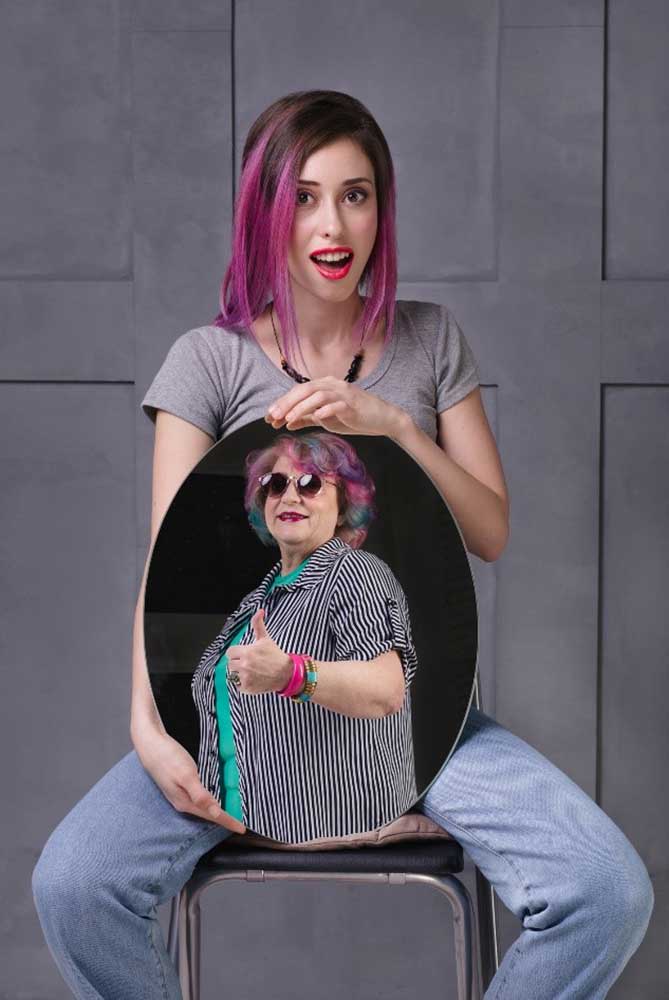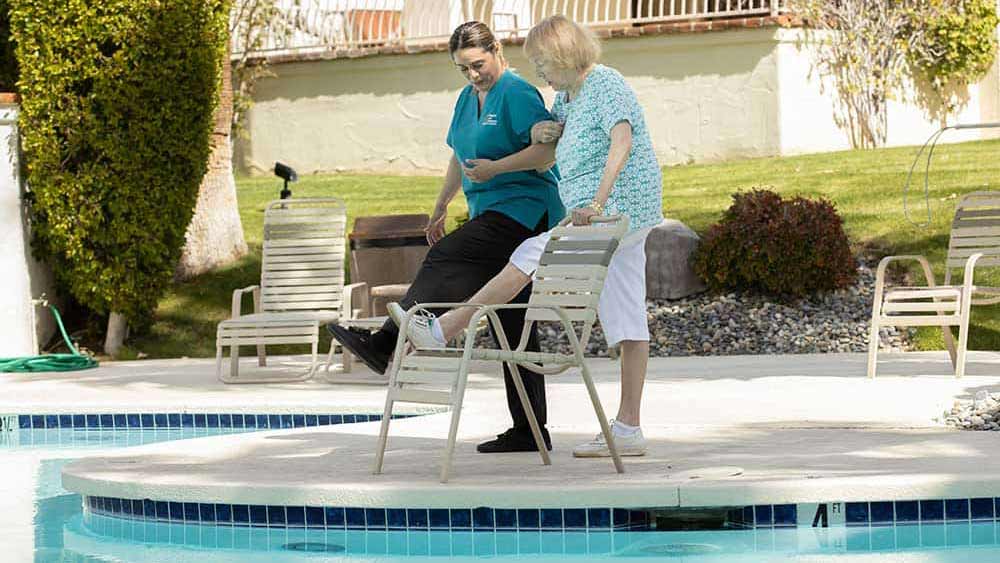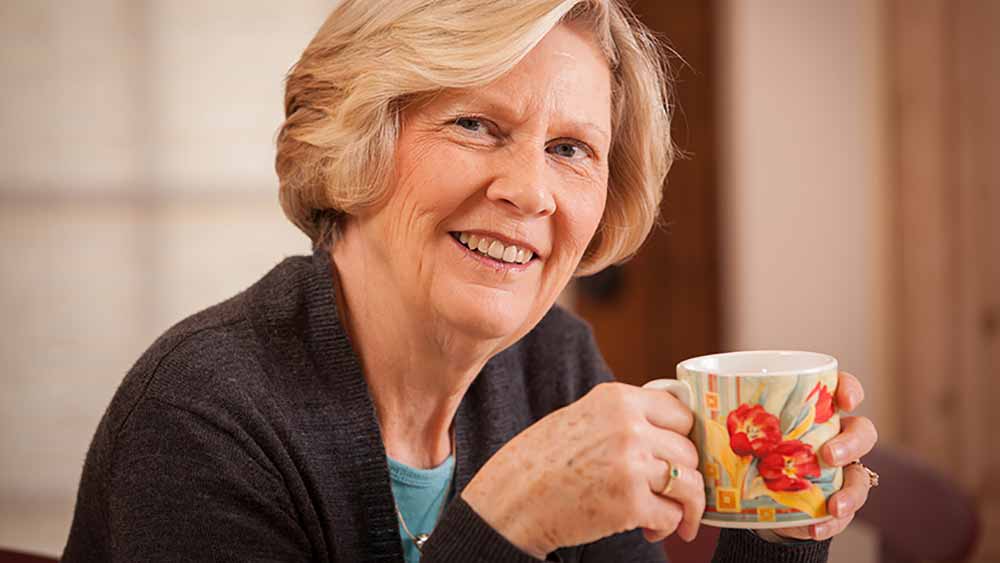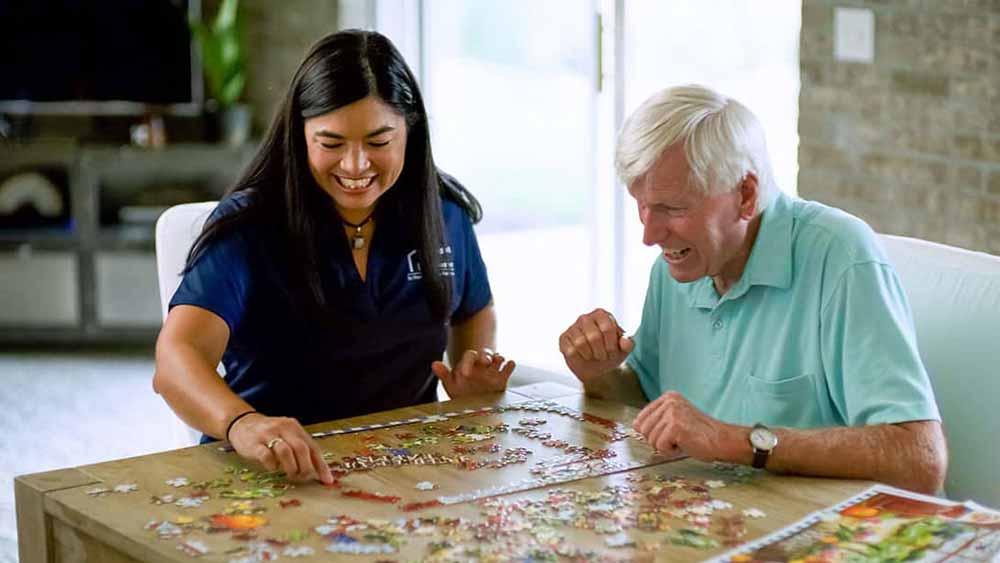

Be Kind to Your Future Self
It’s always tempting to live in the moment—to think about today rather than plan for tomorrow. But that’s a recipe for disappointment when it comes to preparing for our older years.
Experts have developed many innovative experiments to encourage younger people to plan ahead for the changes of aging. There are “aging suits” that use technology to simulate the muscular, visual and thinking changes we might face. Facial aging apps can give young people a glimpse at how they might appear in their later years—in a sense, allowing them to “meet” their older selves.
A good way to motivate ourselves to prepare for our later years is to consider ourselves in a continuum of ages, each stage influencing the well-being of the next. And consider this: At every age, and in the face of any challenges, you will still be you! Your priorities may change, but in general you’ll …
- Treasure your independence.
- Want to do things you enjoy.
- Want to be free to be … you!
Fortunately, today we have lots of information on raising the odds we’ll get those wishes. Have you heard of “cohort studies”? This research observes large groups of people over a long period of time. Looking at the data allows experts to provide us with a road map for making choices when we’re young for which our older selves will thank us!
Take care of your overall health. That’s a pretty tall order. But there are a lot of things we can do when we’re young that raise our odds of independence when we’re older. When we’re healthy and young, regular health care appointments might not seem like a priority. But an individualized health plan, as well as prompt attention to any problems that arise, can have long-term positive effects.
Stay active. We might say, “Well, I’m too busy now. I’ll start working out when I retire.” But science tells us that exercising when we’re young is an important head start in preventing disease and frailty. People who have been active their whole lives are stronger when they’re older. Building a foundation of strong muscle and bone early on creates reserves for when it’s harder to stay fit. And don’t forget that the heart is a muscle, too. Find activities you enjoy and make time for them.

Make good lifestyle choices. Bad habits also have a lifetime effect. Experts from Harvard T.H. Chan School of Public Health at Harvard University looked at data from a number of cohort studies and said, “Maintaining five healthy habits—eating a healthy diet, exercising regularly, keeping a healthy body weight, not drinking too much alcohol, and not smoking—at middle age may increase years lived free of Type 2 diabetes, cardiovascular disease and cancer.”
Think safety. There’s a stereotype that younger people like to take chances—is that true of you? Consider that some activities could have consequences that last well into our later years. An automobile accident, a climbing fall or skateboard wipeout could create disabling injuries that continue to affect us as we age. For example, cohort studies show that head injuries increase the risk of Alzheimer’s disease. Wear your seatbelt, get a bike helmet, and practice sports safety.
Prioritize brain health. It’s impossible to look at brain health separately from overall health. All the factors above protect the brain from injury and shrinkage. But we also need to give our brains a good workout—and the earlier, the better. Much important brain development happens when we’re young. Luckily, most beneficial activities are fun—including studying a musical instrument and learning a language. And the brain needs sleep: Several recent, large cohort studies show that over time, getting fewer than six hours of sleep per night raises the risk of Alzheimer’s by 30%.
Make future-oriented financial decisions. Here’s another area where planning ahead will really pay off—literally. It’s hard for most younger people to save money, but even a small savings plan allows time to work its magic. If your employer offers a retirement savings plan, take advantage of it. Do your homework and talk to an independent financial advisor, even early on. Picture your older self enjoying the benefits of what might feel like a sacrifice now.
Think about where to live. If you’re considering settling down in a “forever home,” consider whether it could continue to meet your needs even if you were living with disabilities. Or would you have to move, thereby giving up years of established social ties and your familiar spaces? Maybe you’re planning a big remodel. If you’re investing in a new kitchen or bathroom, think ahead and install doors wide enough for a wheelchair, and an accessible shower and kitchen counters.
Educate yourself about senior support services. Younger people who are providing care for aging parents or other loved ones may be getting these lessons already! Even if this isn’t you, it’s good to know about assistance you will (and won’t) be able to access down the road. Some older people decide to live in a retirement community or supported living environment. Those who value staying in their own homes can hire professional in-home care to preserve their independence and help them do things they want to do, despite their age or health challenges.
Cultivate a beneficial attitude about aging. Yes, it seems to be a pattern that the younger generation makes disparaging remarks about their elders. We’re certainly seeing it these days with slurs against the baby boomers—who themselves lived under the slogans of “never trust anyone over 30” and “hope I die before I get old.” But consider that a definition of ageism might be “prejudice against your future self.” Numerous cohort studies reveal that young people with a negative attitude about older adults are less likely to experience healthy, happy later years.
It’s time to retire the term “anti-aging.” People do grow older and, as the old saying goes, consider the alternative! Instead, the goal is to promote healthy aging as best you can, while being prepared for health challenges, so your older self can look back at the you of today and say, “Good job!”







